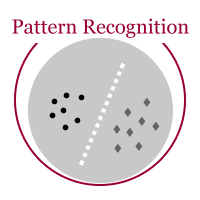Artificial Intelligence (A.I) Algorithmic Trading
This year, we plan to start researching the use of Artificial Intelligence (AI) for algorithmic trading, covering subjects like Machine Learning and Neural Networks to forecast profits. We will dig into the Internet and find all the valuable information about Machine Learning, Deep Learning, AI, Big data, and Analytics. Neural networks are state-of-the-art trainable algorithms that emulate certain significant aspects of the human brain's functioning. This gives them a unique self-training ability, the ability to formalize unclassified information, and, most importantly, the ability to make forecasts based on the historical data they have at their disposal.

Read this excellent article from Turing Finance about the misconceptions of using Neural networks.
It is well known that 80% of data is unstructured. Unstructured data is the messy stuff every quantitative analyst traditionally tries to avoid.
Using Algorithms for Chart Pattern Recognition

Technical analysis uses specific chart patterns that may indicate trend changes. This helps identify price targets and time horizons for stock to reach those price targets.
- Chart pattern recognition has been around for decades. Before personal computers were readily available, stock traders kept books of charts plotted by hand daily. Using their chart books, traders would recognize specific chart patterns as they plotted that day's price into their books. However, this process was time-consuming and limited the number of stocks a trader could realistically follow.
Now, you can automate the classic technical analysis techniques, which expands the number of instruments a trader can review from a few to several thousand.
cTrader Ai Assistants
We have published a few Ai assistants based on ChatGPT to help you create trading tools and learn how to use cTrader.



